Podcast: Play in new window | Download (Duration: 9:46 — 6.9MB) | Embed
Subscribe: Apple Podcasts | Spotify | Amazon Music | Android | Pandora | iHeartRadio | JioSaavn | Podchaser | Gaana | Podcast Index | Email | TuneIn | Deezer | Anghami | RSS | More
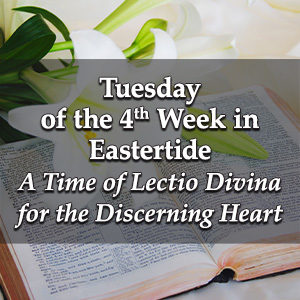 Tuesday of the Fourth Week of Eastertide – A Time of Lectio Divina for the Discerning Heart Podcast
Tuesday of the Fourth Week of Eastertide – A Time of Lectio Divina for the Discerning Heart Podcast
As you begin, take a deep breath and exhale slowly. For at least the next few moments, surrender all the cares and concerns of this day to the Lord.
Say slowly from your heart “Jesus, I Trust In You…You Take Over”
Become aware that He is with you, looking upon you with love, wanting to be heard deep within in your heart…
From the Holy Gospel According to St. John 10:22-30
It was the time when the feast of Dedication was being celebrated in Jerusalem. It was winter, and Jesus was in the Temple walking up and down in the Portico of Solomon. The Jews gathered round him and said, ‘How much longer are you going to keep us in suspense? If you are the Christ, tell us plainly.’ Jesus replied:
‘I have told you, but you do not believe.
The works I do in my Father’s name are my witness;
but you do not believe,
because you are no sheep of mine.
The sheep that belong to me listen to my voice;
I know them and they follow me.
I give them eternal life;
they will never be lost
and no one will ever steal them from me.
The Father who gave them to me is greater than anyone,
and no one can steal from the Father.
The Father and I are one.’
What word made this passage come alive for you?
What did you sense the Lord saying to you?
Once more give the Lord an opportunity to speak to you:
It was the time when the feast of Dedication was being celebrated in Jerusalem. It was winter, and Jesus was in the Temple walking up and down in the Portico of Solomon. The Jews gathered round him and said, ‘How much longer are you going to keep us in suspense? If you are the Christ, tell us plainly.’ Jesus replied:
‘I have told you, but you do not believe.
The works I do in my Father’s name are my witness;
but you do not believe,
because you are no sheep of mine.
The sheep that belong to me listen to my voice;
I know them and they follow me.
I give them eternal life;
they will never be lost
and no one will ever steal them from me.
The Father who gave them to me is greater than anyone,
and no one can steal from the Father.
The Father and I are one.’
What did your heart feel as you listened?
What did you sense the Lord saying to you?
Once more, through Him, with Him and in Him listen to the Word:
It was the time when the feast of Dedication was being celebrated in Jerusalem. It was winter, and Jesus was in the Temple walking up and down in the Portico of Solomon. The Jews gathered round him and said, ‘How much longer are you going to keep us in suspense? If you are the Christ, tell us plainly.’ Jesus replied:
‘I have told you, but you do not believe.
The works I do in my Father’s name are my witness;
but you do not believe,
because you are no sheep of mine.
The sheep that belong to me listen to my voice;
I know them and they follow me.
I give them eternal life;
they will never be lost
and no one will ever steal them from me.
The Father who gave them to me is greater than anyone,
and no one can steal from the Father.
The Father and I are one.’
What touched your heart in this time of prayer?
What did your heart feel as you prayed?
What do you hope to carry with you from this time with the Lord?
Our Father, who art in heaven,
hallowed be thy name.
Thy kingdom come.
Thy will be done on earth, as it is in heaven.
Give us this day our daily bread,
and forgive us our trespasses,
as we forgive those who trespass against us,
and lead us not into temptation,
but deliver us from evil.
Amen


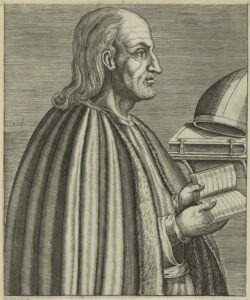 Discerning Hearts Reflection Questions
Discerning Hearts Reflection Questions
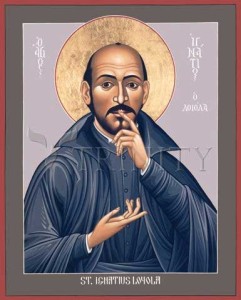 Discerning Hearts Reflection Questions:
Discerning Hearts Reflection Questions: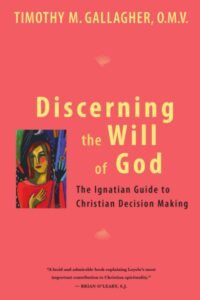
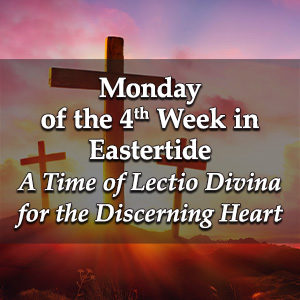 Monday of the Fourth Week of Eastertide – A Time of Lectio Divina for the Discerning Heart Podcast
Monday of the Fourth Week of Eastertide – A Time of Lectio Divina for the Discerning Heart Podcast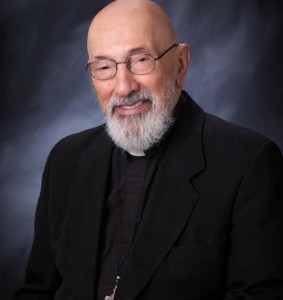
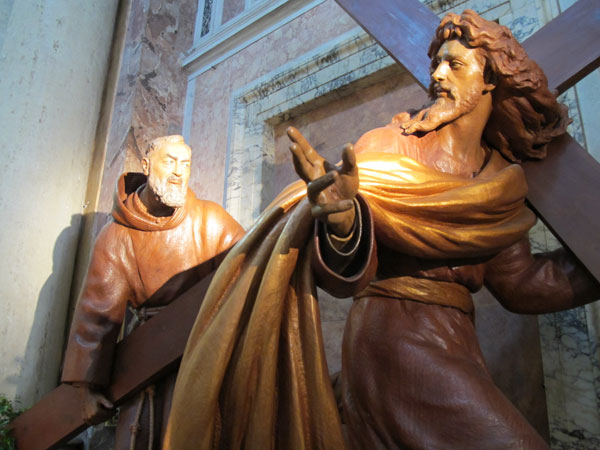
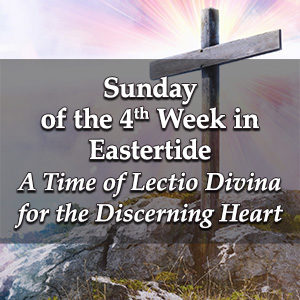 Sunday of the Fourth Week of Eastertide – A Time of Lectio Divina for the Discerning Heart Podcast
Sunday of the Fourth Week of Eastertide – A Time of Lectio Divina for the Discerning Heart Podcast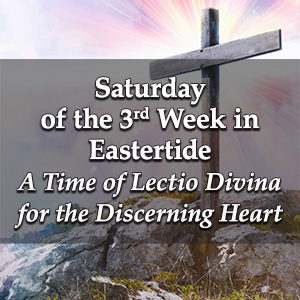 Saturday of the Third Week of Eastertide – A Time of Lectio Divina for the Discerning Heart Podcast
Saturday of the Third Week of Eastertide – A Time of Lectio Divina for the Discerning Heart Podcast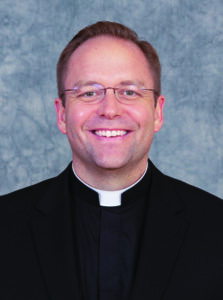
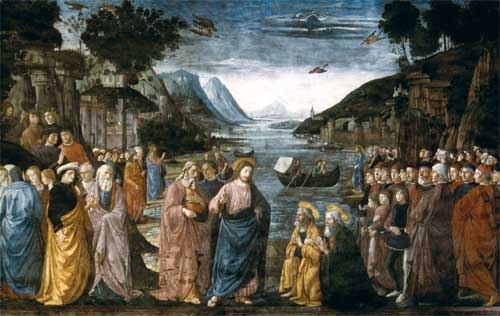
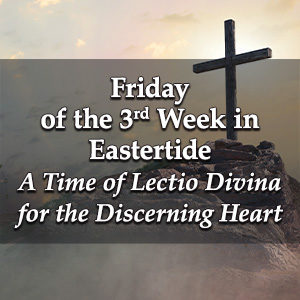 Friday of the Third Week of Eastertide – A Time of Lectio Divina for the Discerning Heart Podcast
Friday of the Third Week of Eastertide – A Time of Lectio Divina for the Discerning Heart Podcast